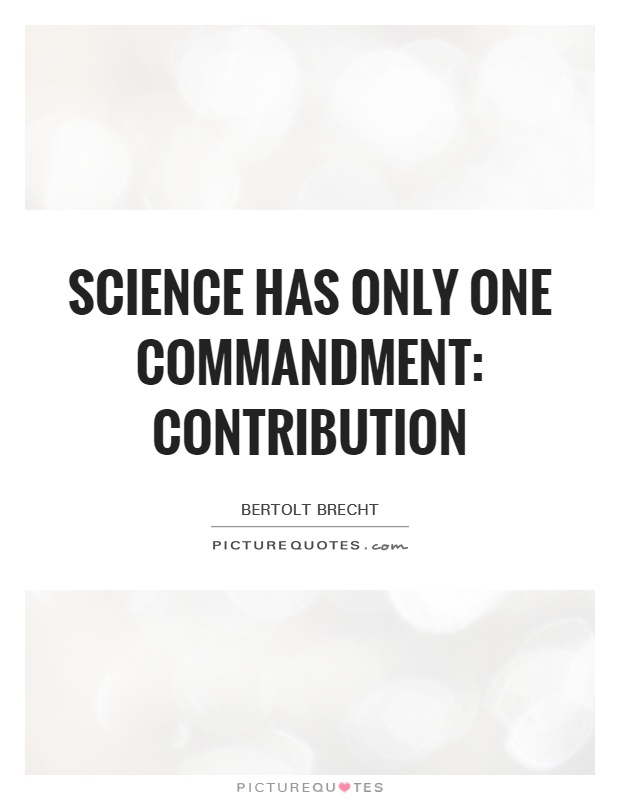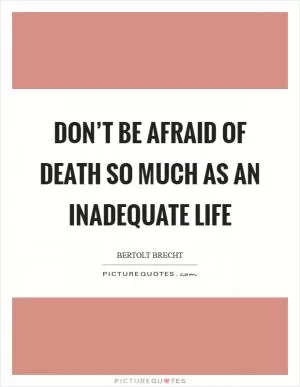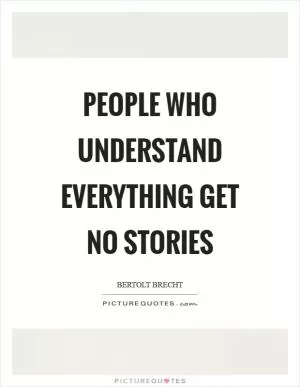Science has only one commandment: contribution

Science has only one commandment: contribution
Bertolt Brecht, the renowned German playwright and poet, was a firm believer in the power of science and its ability to contribute to society. He understood that science has the potential to improve the lives of individuals and communities, and saw it as a moral imperative for scientists to use their knowledge and skills for the betterment of humanity. In this context, the idea that "science has only one commandment: contribution" resonates deeply with Brecht's philosophy and ethos.For Brecht, the pursuit of knowledge and understanding through scientific inquiry was not just an intellectual exercise, but a means to an end – the end being the advancement of society and the alleviation of human suffering. He believed that scientists had a responsibility to share their discoveries and innovations with the world, and to use their expertise to address pressing social and environmental challenges. In this sense, the commandment of contribution was not just a suggestion, but a moral imperative that all scientists should adhere to.
Brecht's own work often reflected his belief in the importance of scientific contribution. In plays such as "Galileo" and "The Life of Galileo," he explored the ethical dilemmas faced by scientists who must choose between advancing knowledge and protecting the status quo. Through these works, Brecht challenged his audience to consider the implications of scientific discovery and the responsibilities that come with it.
In today's world, the commandment of contribution remains as relevant as ever. As we grapple with complex global issues such as climate change, pandemics, and social inequality, the need for scientific innovation and collaboration has never been greater. Scientists and researchers must continue to prioritize the greater good over personal gain, and work together to find solutions to the most pressing challenges of our time.












 Friendship Quotes
Friendship Quotes Love Quotes
Love Quotes Life Quotes
Life Quotes Funny Quotes
Funny Quotes Motivational Quotes
Motivational Quotes Inspirational Quotes
Inspirational Quotes